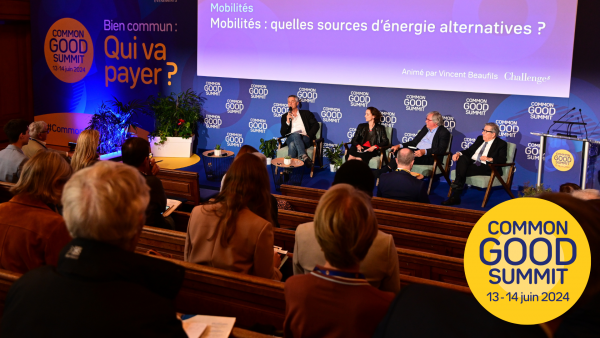
This debate took place as part of the fourth edition of the Summit of the Common Good, organised jointly by TSE, Challenges and Les Echos-Le Parisien Evénements. On 13 and 14 June 2024, economists, economic decision-makers, representatives of public authorities and civil society came together to reflect on a central question: Who will pay for the common good?
To resolve the issue of decarbonizing mobility, we can rely in particular on innovative technologies. But these are not without their difficulties.
For the time being, hydrogen only concerns trains and buses. There are no plans to use it for "everyday" cars.
While hydrogen has the advantage of being able to store electricity and be used directly in certain engines, its energy yield is not always attractive. What's more, this energy is currently derived from fossil fuels.
If electric mobility is to become widespread, we still need to be able to generate the necessary electricity! For a 100% electric car fleet, we'll need more EPRs, photovoltaic panels and wind turbines, as well as recharging infrastructures. And that's no easy task.
Betting on these new technologies is a good thing, and they should be encouraged by funding research, but it's not certain that they can be counted on to meet the EU's Green Deal targets. What's more, these technologies will only see the light of day if they are competitive with fossil fuels. Yet there is social resistance to carbon taxation.
The real issue is to prepare, in the short term, the economic conditions for optimized, resilient and inclusive mobility, through cooperative solutions and data sharing. These solutions are known as congestion charging, MaaS ("Mobility as a Service"), and priority access to road infrastructure for public transport. It's not certain that we're investing enough in this strategic area to meet the challenges.
Article published in Challenges in June 2024
© Anaëlle Raguet © Franck Foucha




